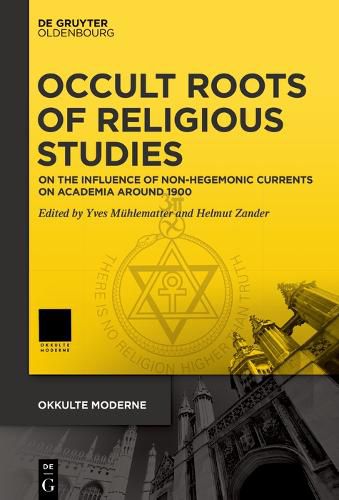Readings Newsletter
Become a Readings Member to make your shopping experience even easier.
Sign in or sign up for free!
You’re not far away from qualifying for FREE standard shipping within Australia
You’ve qualified for FREE standard shipping within Australia
The cart is loading…






This title is printed to order. This book may have been self-published. If so, we cannot guarantee the quality of the content. In the main most books will have gone through the editing process however some may not. We therefore suggest that you be aware of this before ordering this book. If in doubt check either the author or publisher’s details as we are unable to accept any returns unless they are faulty. Please contact us if you have any questions.
The historiographers of religious studies have written the history of this discipline primarily as a rationalization of ideological, most prominently theological and phenomenological ideas: first through the establishment of comparative, philological and sociological methods and secondly through the demand for intentional neutrality. This interpretation caused important roots in occult-esoteric traditions to be repressed. This process of purification (Latour) is not to be equated with the origin of the academic studies. De facto, the elimination of idealistic theories took time and only happened later. One example concerning the early entanglement is Tibetology, where many researchers and respected chair holders were influenced by theosophical ideas or were even members of the Theosophical Society. Similarly, the emergence of comparatistics cannot be understood without taking into account perennialist ideas of esoteric provenance, which hold that all religions have a common origin. In this perspective, it is not only the history of religious studies which must be revisited, but also the partial shaping of religious studies by these traditions, insofar as it saw itself as a counter-model to occult ideas.
$9.00 standard shipping within Australia
FREE standard shipping within Australia for orders over $100.00
Express & International shipping calculated at checkout
This title is printed to order. This book may have been self-published. If so, we cannot guarantee the quality of the content. In the main most books will have gone through the editing process however some may not. We therefore suggest that you be aware of this before ordering this book. If in doubt check either the author or publisher’s details as we are unable to accept any returns unless they are faulty. Please contact us if you have any questions.
The historiographers of religious studies have written the history of this discipline primarily as a rationalization of ideological, most prominently theological and phenomenological ideas: first through the establishment of comparative, philological and sociological methods and secondly through the demand for intentional neutrality. This interpretation caused important roots in occult-esoteric traditions to be repressed. This process of purification (Latour) is not to be equated with the origin of the academic studies. De facto, the elimination of idealistic theories took time and only happened later. One example concerning the early entanglement is Tibetology, where many researchers and respected chair holders were influenced by theosophical ideas or were even members of the Theosophical Society. Similarly, the emergence of comparatistics cannot be understood without taking into account perennialist ideas of esoteric provenance, which hold that all religions have a common origin. In this perspective, it is not only the history of religious studies which must be revisited, but also the partial shaping of religious studies by these traditions, insofar as it saw itself as a counter-model to occult ideas.